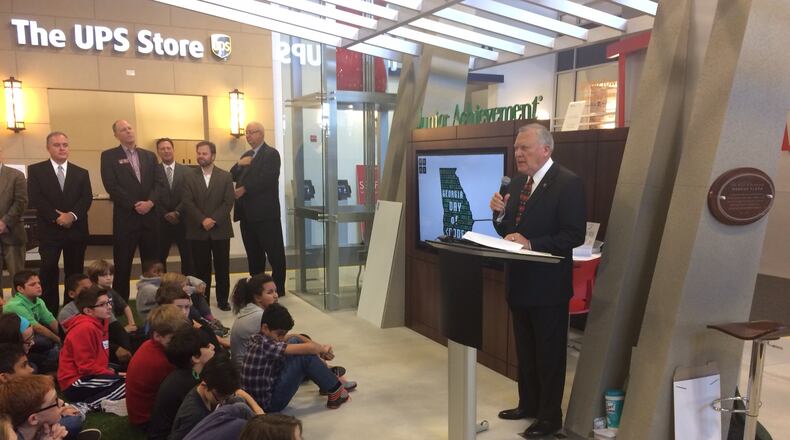An aging workforce is preparing to retire and there are not enough skilled workers in Georgia to replenish it. A dearth of computer programmers and engineers is forcing firms to search out-of-state for staffers. And some of the new hires show an alarming lack of basic "soft skills" expected in today's offices.
The state's High Demand Career Initiative released findings this morning that highlighted trouble spots for Georgia's job sector -- and potential opportunities to improve the state's workforce.
The 42-page report could provide fresh fodder for legislators seeking ways to bolster Georgia's economy during the legislative session that begins in January. And it could offer Gov. Nathan Deal ways to address the state's stubborn unemployment rates - the nation's highest for three months in a row - that dogged him during his re-election campaign.
It's the result of 13 meetings with industry leaders over eight months, and some of the gatherings yielded findings that unnerved state officials.
The first meeting in April, for one, featured Home Depot executives who complained they couldn't find enough software developers in metro Atlanta, forcing the company to import most its programming wizards from other states.
Other meetings outlined similar concerns. Some 19 companies said they expect a large chunk of their employees to retire soon, and many don't know how they can be replaced. Several others complained of a shortage of local skilled workers, particularly in the high-demand film and manufacturing industries.
That's set off a scramble to fill their ranks. A Toyo Tires executive lamented that the firm had to go out-of-state to find maintenance workers. A manager at LMC Manufacturing told the panel that the firm expects to canvass the country because there are not enough skilled laborers here.
Others encouraged Georgia educators to beef up its workforce training curriculum. Several executives said K-12 schools needed to introduce students at a younger age to careers that employ science, technology, engineering and mathematics. And they were urged not to forget basic soft skills like problem-solving and communication.
“We need people who are collaborative, who have the ability to communicate both verbally and through written form," a Rayonier executive told the panel. "I need craftsmen that can craft an email.”
Some of the initiative's findings are already stirring change in the state's education protocol. Deal has proposed that schools allow computer programming courses to satisfy core requirements for high school students, and the University System of Georgia is creating a Cyber Security Initiative to capitalize on the U.S. Army Cyber Command's move to Fort Gordon in Augusta.
Higher education officials are also launching a survey to determine the needs of some of the high-demand industries, including the booming movie industry, to see what new courses should be offered. And the state has set its long-term sights on the creation of a Georgia Film Academy that could train the industry's workforce.
And Home Depot, which set off alarm bells with its concerns at the April meeting, triggered a rapid response by the state's technical college system. Gwinnett Technical College, the report says, is now working with the home improvement giant to train more programmers.
Deal, who launched the initiative this year, said in an interview that the report offers a roadmap to strengthen ties between the government and industry leaders.
"It's indicative that we are making progress in our state," said the governor. "And we're going to try to keep that progress moving."
About the Author
The Latest
Featured




